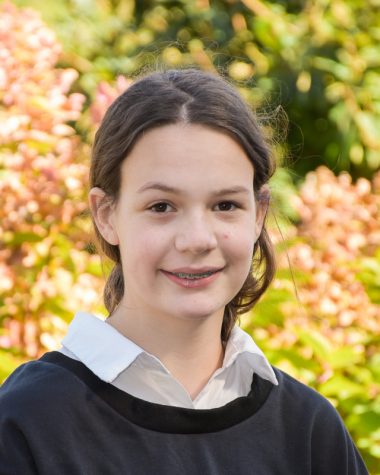Op-Ed: Texas Lawmakers, Let Kids Read Diverse Books
In the Middle and Upper School Library here, books about social justice issues are shown on display.
On October 25, Texas Republican State Representative Matt Krause sent a letter to the Texas Education Agency asking that 850 books be banned in public school libraries. The books on the list focus on sex education, race, and LGBTQ+ topics.
The target age demographics for the books vary, but most are young adult novels. Almost anyone can read a young adult novel because they are not considered inappropriate compared to adult books. The majority of the books are fiction, making up 58.9 percent of the list. While fiction books aren’t strictly educational, they can still have valuable life lessons.
For example, when teenagers don’t have access to books about teen pregnancy, they might not learn how to prevent it. It’s not like they can read about abortions if they get pregnant, because those books would also be banned under Krause’s list. If books about race and racism are prohibited, it may hinder children’s education on those topics. The books about the LGBTQ+ community can teach people about different sexualities and genders. When you know more about a topic, people may be more open to it, so not being educated about topics like LGBTQ+ issues might cause students not to respect them.
It’s one thing for parents not to want their children to read books about a particular topic, but to want all public schools in the state to ban these books is another issue. I can begin to understand a parent not wanting their child to read books that go against their beliefs, but they shouldn’t get to decide what other kids read.
Books can be a great educational resource, and some topics are things that parents do not talk to their children about. There are other ways to learn about those topics, like reading online and asking other adults, but the best way to learn about something is by reading a book about it.
When I first saw the list, the first thing that came to mind was, “Now I have a new reading list.” The more I looked into the list, the more I felt like Krause typed in “gay books” or “abortion books” into a search engine to find titles to ban.
Library Program Supervisor Diversity, Equity, & Inclusion Curriculum Liaison Elyse Seltzer said that she doesn’t believe in banning books.
“However, we are a school library,” Seltzer said. “We can’t have everything, and in a way, I recognize I do make choices about what I get and what I don’t get. While that isn’t banning, I am still very thoughtful about that, and our collection reflects our community and individuals, so they feel seen.”
I had the idea to see how many of the books Krause wants to ban can be found in the School’s library. After a lot of copying and pasting, I found at least 46 of the books in our library database. Out of all the books, I have read 12 of the books, and I want to read 19. They are topics I’m interested in, and I’d like to be able to spite Krause by reading books that kids shouldn’t be able to read.
Another thing that bothers me about this is how people don’t want their one- to five-year-olds to read books about abortion and sex when they are at an age when they likely can’t read that well or at all. The average age for learning to read is ages six to seven, and the average age for kids to learn about sex is ages eight to nine. If children read those books at that age, they probably don’t understand it.
If Krause gets away with banning these books, students in Texas won’t be able to educate themselves on important topics.

























































